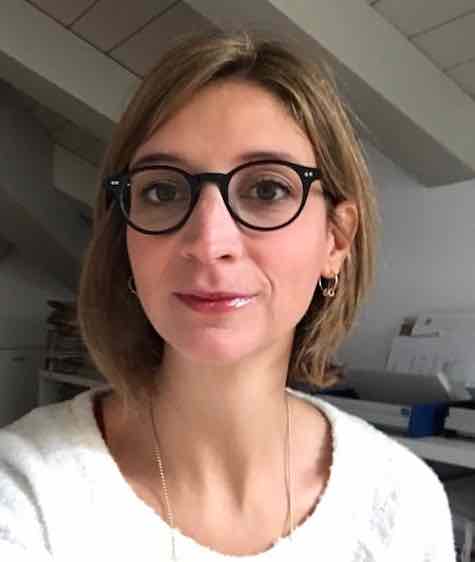Studying at the University of Verona
Here you can find information on the organisational aspects of the Programme, lecture timetables, learning activities and useful contact details for your time at the University, from enrolment to graduation.
Academic calendar
The academic calendar shows the deadlines and scheduled events that are relevant to students, teaching and technical-administrative staff of the University. Public holidays and University closures are also indicated. The academic year normally begins on 1 October each year and ends on 30 September of the following year.
Course calendar
The Academic Calendar sets out the degree programme lecture and exam timetables, as well as the relevant university closure dates..
| Period | From | To |
|---|---|---|
| Annuale (Lingue e letterature straniere) | Sep 28, 2020 | May 29, 2021 |
| I semestre (Lingue e letterature straniere) | Sep 28, 2020 | Jan 9, 2021 |
| II semestre (Lingue e letterature straniere) | Feb 15, 2021 | May 29, 2021 |
| Session | From | To |
|---|---|---|
| ESAMI LINGUE - sessione invernale | Jan 11, 2021 | Feb 13, 2021 |
| ESAMI LINGUE - sessione estiva | May 31, 2021 | Jul 24, 2021 |
| ESAMI LINGUE - sessione autunnale | Aug 30, 2021 | Sep 25, 2021 |
| Session | From | To |
|---|---|---|
| LAUREE LINGUE - sessione autunnale (a.a. 2019/20) | Nov 2, 2020 | Nov 7, 2020 |
| LAUREE LINGUE - sessione straordinaria (a.a. 2019/20) | Apr 7, 2021 | Apr 13, 2021 |
| LAUREE LINGUE - sessione estiva (a.a. 2020/21) | Jul 5, 2021 | Jul 10, 2021 |
| Period | From | To |
|---|---|---|
| Festa di Ognissanti | Nov 1, 2020 | Nov 1, 2020 |
| Festa dell'Immacolata | Dec 8, 2020 | Dec 8, 2020 |
| Festa della liberazione | Apr 25, 2021 | Apr 25, 2021 |
| Festa del lavoro | May 1, 2021 | May 1, 2021 |
| Festa del Santo Patrono | May 21, 2021 | May 21, 2021 |
| Festa della Repubblica | Jun 2, 2021 | Jun 2, 2021 |
Exam calendar
Exam dates and rounds are managed by the relevant Foreign Languages and Literatures Teaching and Student Services Unit.
To view all the exam sessions available, please use the Exam dashboard on ESSE3.
If you forgot your login details or have problems logging in, please contact the relevant IT HelpDesk, or check the login details recovery web page.
Should you have any doubts or questions, please check the Enrollment FAQs
Academic staff
 daniele.beltrame@univr.it
daniele.beltrame@univr.it
 bernardo.calabrese@univr.it
bernardo.calabrese@univr.it
 silvia.cavalieri@univr.it
silvia.cavalieri@univr.it
 riccardo.cella@univr.it
riccardo.cella@univr.it
 elisa.dallarosa@univr.it
elisa.dallarosa@univr.it
 sara.dattoma@univr.it
sara.dattoma@univr.it
 jacopo.galavotti@univr.it
jacopo.galavotti@univr.it
 veronica.gobbato@univr.it
veronica.gobbato@univr.it
 diegogabriel.krivochen@univr.it
diegogabriel.krivochen@univr.it
 stefania.montemezzo@univr.it
stefania.montemezzo@univr.it
 chunye.niu@univr.it
chunye.niu@univr.it
 simone.pregnolato@univr.it
simone.pregnolato@univr.it
 fabioantonio.scrignoli@univr.it
fabioantonio.scrignoli@univr.it
 tania.triberio@univr.it
tania.triberio@univr.it
 francesco.zuin@univr.it
francesco.zuin@univr.it
Study Plan
The Study Plan includes all modules, teaching and learning activities that each student will need to undertake during their time at the University.
Please select your Study Plan based on your enrollment year.
1° Year
| Modules | Credits | TAF | SSD |
|---|
1st foreign language2nd foreign language1st foreign literature and cultureGerman literature and culture 1
2 foreign literature and cultureGerman literature and culture 1
2° Year activated in the A.Y. 2021/2022
| Modules | Credits | TAF | SSD |
|---|
1st foreign language2nd foreign language1st foreign literature and culture or a related courseAnglophone literatures and cultures
English literature and culture 2
French literature and culture 2
German literature and culture 2
Spanish literature and culture 2
2nd foreign literature and culture or a related courseAnglophone literatures and cultures
English literature and culture 2
French literature and culture 2
German literature and culture 2
Spanish literature and culture 2
Italian literature and culture
Geography of communication and international trade
Modern and Contemporary Economic History
Theory and Techniques of communication
3° Year activated in the A.Y. 2022/2023
| Modules | Credits | TAF | SSD |
|---|
1st foreign language2nd foreign languageComparative and European Public law
Principles of international marketing
| Modules | Credits | TAF | SSD |
|---|
1st foreign language2nd foreign language1st foreign literature and cultureGerman literature and culture 1
2 foreign literature and cultureGerman literature and culture 1
| Modules | Credits | TAF | SSD |
|---|
1st foreign language2nd foreign language1st foreign literature and culture or a related courseAnglophone literatures and cultures
English literature and culture 2
French literature and culture 2
German literature and culture 2
Spanish literature and culture 2
2nd foreign literature and culture or a related courseAnglophone literatures and cultures
English literature and culture 2
French literature and culture 2
German literature and culture 2
Spanish literature and culture 2
Italian literature and culture
Geography of communication and international trade
Modern and Contemporary Economic History
Theory and Techniques of communication
| Modules | Credits | TAF | SSD |
|---|
1st foreign language2nd foreign languageComparative and European Public law
Principles of international marketing
| Modules | Credits | TAF | SSD |
|---|
Legend | Type of training activity (TTA)
TAF (Type of Educational Activity) All courses and activities are classified into different types of educational activities, indicated by a letter.
English literature and culture 1 [Cognomi A-E] (2020/2021)
Teaching code
4S002903
Teacher
Coordinator
Credits
6
Language
English
Scientific Disciplinary Sector (SSD)
L-LIN/10 - ENGLISH LITERATURE
Period
I semestre (Lingue e letterature straniere) dal Sep 28, 2020 al Jan 9, 2021.
Learning outcomes
The course, held in English, aims at introducing students to relevant aspects of English literature, from the Pre-Romantic to the contemporary period, through the reading of a selection of canonical texts. Primary notions about possible methodological approaches for the analysis of literary texts and genres will be imparted. Furthermore, the course will provide a sound knowledge of the English literature of the period (historical context, texts, genres, literary movements and authors) and stimulate abilities and skills for the critical analysis of texts, their discussion and analysis, in consideration of their historical, cultural, and context specificities.
At the end of the course, students will be able to:
- Analyse the literary texts of the syllabus discussing them in relation to their historical and cultural context;
- Discuss the texts using an appropriate critical approach demonstrating the knowledge of the literary conventions of their time;
- Express the acquired literary and critical knowledge demonstrating an adequate competence also in the English language.
Program
PROGRAMME
Look Back at Empire: British Literature and (De)Colonisation
Moving from a selection of narrative texts dating from the first and second half of the nineteenth century, the module will investigate the literary, cultural, and discursive patterns that hinge on the idea of empire, from its apex to its dissolution, by critically looking at the phenomenon of colonialism and its legacy, between devotion, exaltation, protest, and problematic nostalgia.
Please be advised
Language: lectures will be in English.
Further details on required readings and general information on bibliographical material will be provided during classes.
BIBLIOGRAPHY
Primary Texts
- E.M. Forster, A Passage to India (1924), any edition.
- S. Selvon, The Lonely Londoners (1956), Penguin Books
- H. Kureishi, The Buddha of Suburbia (1990), Faber and Faber
References
- Shun Yin Kiang, “Failures that Connect; or, Colonial Friendships in E.M. Forster’s A Passage to India”, Ariel, 47 (3), 2016, pp. 123-148.
- D. Bradshaw (ed.), The Cambridge Companion to E.M. Forster (CUP, 2007), cap. 12: P. Childs, “A Passage to India”, pp. 188-208.
- M. Looker, Atlantic Passages (Peter Lang, 1996): “Inventing Black London: The Lonely Londoners” (pp. 59-80)
- J. Procter, Dwelling Places. Postwar Black British Writing (Manchester University Press, 2003): Introduction (pp. 1-20) and ch. 4 (“Suburbia”, pp. 125-159).
Handbook
As regards the literary and cultural context spanning from Romanticism to Post-modernism, students will refer to:
- A. Sanders, The Short Oxford History of English Literature (Oxford University Press, 2003 - third edition), chapters 6 (“The Literature of the Romantic Period 1780-1830”), 7 (“High Victorian Literature, 1830-1880), 8 (“Late Victorina and Edwardian Literature, 1800-1920”), 9 (“Modernism and its Alternatives: Literature 1920-1945”) and 10 (“Post-War and Post-Modern Literature”).
| Author | Title | Publishing house | Year | ISBN | Notes |
|---|---|---|---|---|---|
| E.M. Forster | A Passage to India | qualsiasi | 1924 | ||
| M. Looker | Atlantic Passages (chapter "Inventing Black London: The Lonely Londoners") | Peter Lang | 1996 | ||
| James Procter | Dwelling Places | Manchester University Press | 2003 | Introduction and chapter 4 | |
| Shun Yin Kiang | “Failures that Connect; or, Colonial Friendships in E.M. Forster’s A Passage to India”, Ariel, 47 (3), pp. 123-148. | 2016 | |||
| Hanif Kureishi | The Buddha of Suburbia | 1990 | |||
| D. Bradshaw | The Cambridge Companion to E.M. Forster: chapter 12: P. Childs, “A Passage to India”, pp. 188-208. | Cambridge University Press | 2007 | ||
| Sam Selvon | The Lonely Londoners | Penguin | 1956 | ||
| A. Sanders | The Short Oxford History of English Literature | Oxford University Press | 2003 | I seguenti capitoli: 6 (“The Literature of the Romantic Period 1780-1830”), 7 (“High Victorian Literature, 1830-1880), 8 (“Late Victorina and Edwardian Literature, 1800-1920”), 9 (“Modernism and its Alternatives: Literature 1920-1945”) e 10 (“Post-War and Post-Modern Literature”). |
Examination Methods
EXAM METHOD
Typology: oral exam. There will be no mid-term tests.
The exam will consist in an oral discussion (in English) that will test the knowledge of the module’s topics (texts, authors, and genres) and the literary and cultural context (Handbook; main authors and movements from Romanticism to Post-modernism). Assessment will consider: 1. the knowledge and comprehension of primary texts, 2. the development of good analytical and synthetic skill levels with regard to the main historical, cultural, textual, and critical topics of the module, 3. the use of an appropriate vocabulary. Students will have to bring their primary texts (see a. above) at the exam and they may be required to read and comment on passages taken from them.
Type D and Type F activities
To discover all the teaching activities accredited by the foreign teaching college click here
Career prospects
Module/Programme news
News for students
There you will find information, resources and services useful during your time at the University (Student’s exam record, your study plan on ESSE3, Distance Learning courses, university email account, office forms, administrative procedures, etc.). You can log into MyUnivr with your GIA login details: only in this way will you be able to receive notification of all the notices from your teachers and your secretariat via email and soon also via the Univr app.
Student login and resources
Gestione carriere
Assegnazione tutore
Attività accreditate D/F
Calendario didattico dettagliato
Cambio lingua curriculare
Competenze informatiche
Competenze linguistiche (prima e seconda lingua)
Competenze linguistiche in triennale (terza lingua CFU F)
Compilazione del piano didattico
Corso di Lingua portoghese
Erasmus+ e altre esperienze all'estero
Linguistic training CLA
Presentazione dei corsi di studio e Open day
Graduation
List of theses and work experience proposals
| Stage | Research area |
|---|---|
| PROGETTO MAMBRINO Stage per bibliografia | Various topics |
Saperi minimi
Stage e tirocini
Nel piano didattico della laurea triennale in Lingue per il turismo e il commercio internazionale (L12) è previsto un periodo di stage obbligatorio (CFU 6) in organizzazioni imprenditoriali.
Le attività di stage sono finalizzate a far acquisire allo studente una conoscenza diretta in settori di particolare interesse per l’inserimento nel mondo del lavoro e per l’acquisizione di abilità professionali specifiche.
Le attività di stage sono svolte sotto la diretta responsabilità di un singolo docente presso studi professionali, enti della pubblica amministrazione, aziende accreditate dall’Ateneo veronese.
I crediti maturati in seguito ad attività di stage saranno attribuiti secondo quanto disposto nel dettaglio dal “Regolamento d’Ateneo per il riconoscimento dei crediti maturati negli stage universitari” vigente.
- Tutte le informazioni in merito agli stage per futuri studenti sono disponibili alla pagina Stage e tirocini.
- Tutte le informazioni in merito agli stage per studenti iscritti sono pubblicate in MyUnivr - come fare per - stage e tirocini.
- Tutte le informazioni in merito agli stage per le aziende sono disponili alla pagina Stage e tirocini per azienze.
Ulteriori informazioni al seguente link https://www.univr.it/it/i-nostri-servizi/gestione-carriere-studenti-lingue-e-letterature-straniere/stage-e-tirocini-lingue-e-letterature-straniere

 +39 045802 8409
+39 045802 8409


























































